BA (Hons) Leadership and Management

Our Leadership and Management degree is dual accredited by the Chartered Management Institute (CMI) and is suited to those looking to begin or develop a career in a variety of management functions both in the business and public sector.
- Level
- 6
- Entry Point
- Sep 2026
- Duration
- Full Time, 3 years
- Venue
- Norfolk House campus
- UCAS Course Code
- N202
Reasons to study
this course
This Leadership and Management degree will equip you with the skills and strategies to deal with contemporary challenges in management practice that research by the Chartered Management Institute (CMI) highlights. It has been developed in consultation with local and global partners and professional bodies.
During the course the principal methods of teaching and learning will be:
- Lectures
- Demonstrations
- Presentations
- Seminars
- Group work
- Simulations
- Case studies
- Self-study
We regularly arrange industry guest speakers from local employers to enhance delivery of module content. This links theoretical perspectives with practice and will further enhance the learning experience.
You will supplement the above with independent study, an extra 12 or more hours a week, so will be balancing personal situations (home and work) to meet typical challenges of studying at degree level. The emphasis on application of management and leadership skills means that this is a vocational and academic programme and will enable students to both ground their learning in the workplace and to reflect on work practice in an academic context.
The degree course is taught alongside our Chartered Manager Degree Apprenticeship allowing you to share leadership and management experience with existing managers from a broad range of organisations. Diversity in the classroom is vital and individual needs are supported throughout the programme. Irrespective of background, and experience - professionally and academically – you will be fully supported by staff and others in the group.

Stephen Moseley - Course Leader BA (Hons) Leadership and Management
As the course leader of BA (Hons) Leadership and Management, I am delighted to welcome you. We will equip you with an enhanced, transferable skill set of competencies needed by modern businesses.
I have been a lecturer on a range of courses at City College Norwich for several years, the majority of which has been delivering higher level management apprenticeships. I have also previously been an Apprenticeship Workplace Supervisor, helping the apprentices evidence the transfer of learning at college to their workplace.
I worked in financial services for over 30 years at two large insurance companies. My last role was as Training Consultant, identifying and delivering learning solutions to meet business needs. My responsibilities also included oversight of employee competency in accordance with regulatory requirements. I hold a Masters degree in Learning and Teaching, a BA (Hons) in Post-Compulsory Education, and Certificate in Education through study at City College Norwich. I am also a Fellow of Advance HE, and certified in Internal Quality Assurance (IQA) practice.
Please contact me with any questions and I look forward to supporting the next step of your professional journey.
Contact course leaderWhere will this
course take you?
This BA (Hons) Leadership and Management degree is aimed at current or aspiring leaders and managers. The course will support you to develop a portfolio of experiences and transferable skills in leadership and management to give you the confidence to seek employment in management practice.
Students who have studied this course have progressed into more senior management roles in their organisation, others have progressed their professional career with a change of employer. Students have also transitioned into teaching roles.
Course structure
This course is studied full time over three years. The programme is delivered one day a week - 30 teaching weeks per year.
Level 4 modules
Professional and Academic Skills Core
Organisational Behaviour Compulsory
This module introduces you to influences on behaviour at different levels; the individual, the group and the organisation. There will be an overall theme to the module that will explore the influence of organisational behaviour when creating and managing high performance teams.
Assessment:
- Presentation
- Report
Marketing Principles and Practice Core
This module introduces the core concepts of marketing and how they can be applied to businesses, public sector bodies and other organisations. You will gain an understanding of the role marketing plays in helping businesses and non-commercial organisations realise their own corporate goals and objectives, as well as how it is used to support sales, customer engagement, and the development of products and services. Concepts including marketing orientation, the marketing mix, targeting and segmentation are covered, in traditional and digital settings.
Assessment:
-
Presentation
- Report
Leading Change in Organisations Compulsory
This module enables you to identify creative solutions which are designed to address an aspect within their organisation. The real emphasis is placed on the role of the leader to facilitate enterprise and change in an organisation. You will apply creative techniques and strategies to manage the process and develop their understanding of organisational culture and change. You will also develop a reflective approach to the importance of entrepreneurship and consider the organisational change in a dynamic environment.
Assessment:
-
Change Management Proposal
-
Reflective Account
Employment and Contract Law Compulsory
This module aims to introduce you to the principles of English Law and the regulations governing how the law is implemented in England and Wales. Consequently, the facility by which the law resolves business disputes is reviewed. It is intended that the module will provide the student with knowledge and understanding of the legal framework surrounding employment and contract law.
Assessment:
-
Case Study
-
Professional Discussion
Business Analysis Compulsory
This module explores the tools, techniques, and concepts used to analyse an organisation’s strategy. Various investigation techniques will be explored and modelling the business process to help potential problems and options for improvement. This module also covers ways to define a considered solution and explore the process of developing a business case, including the financial aspects that could be considered.
Assessment:
- Exam
Level 5 modules
Managing Accounting and Finance Core
This module has been designed to enable you to understand how financial systems within organisations operate. You will evaluate the sources of finance for organisations and understand the principles for setting and managing budgets in line with regulatory and organisational guidelines. This module has been designed to enhance students' confidence and credibility in financial management, translating into improved management skills.
Assessment:
-
Report
-
Presentation
Project Management Core
This module aims to develop and apply a practical approach to the use, planning and implementation of a range of projects - from setting up tasks and finish projects to delivery and implementation of information systems. Different approaches to and tools of project management will be explored and applied. The module will also explore how effective management of change can be key to achieving competitive advantage.
Assessment:
-
Portfolio of Work
-
Project Presentation
-
Critical Analysis Report
Research Skills in Business Core
This module develops the learning and development skills introduced in the Professional and Academic Skills module at Level 4. You will focus on sector-based research and evaluation skills. The module will develop an appreciation of methodological approaches and critical thinking skills appropriate to the subject area. You will learn how to develop a research idea, which can help them to understand how to embed research practices into the workplace. You will produce a literature review to support a proposed research proposal. This module will provide a foundation for further study, including their dissertation / extended work-based project at level 6.
Assessment:
-
Essay
-
Research Proposal
People and Talent Management Compulsory
This module explores Strategic Human Resources Management, including insights offered by occupational psychology. The module is designed for you to explore these theoretical perspectives to produce better solutions to business and organisational problems involving the leadership and management of people.
Assessment:
-
Essay (HR Theme)
-
Presentation (Psychology theme)
Marketing in a Digital Age Compulsory
This module aims to deepen the understanding of marketing principles and practices studied at Level 4, with the introduction of concepts such as consumer behaviour, attitude formation, and persuasion techniques. Digital and online marketing settings are examined, current industry practices investigated such as content marketing, email marketing, and social media marketing and the shift towards personalisation in marketing communications.
Assessment:
-
Presentation (Exhibition)
-
Report
Operations Management Compulsory
Transforming multiple resources into products and services is a vital area of competence for managers. This module emphasises the convergence of service and manufacturing philosophies in the approach to operations management. It aims to illustrate management perspectives that link operational with corporate strategies. A balance of qualitative understanding and quantitative models and approaches is sought to elucidate challenges for the decision-making of operations managers. Contemporary organisational and business examples, applications and case studies are reviewed throughout the module.
Assessment:
- Report
Level 6 modules
Dissertation or Extended Work Based Project Core
The dissertation represents the culmination of a degree course and the achievement of honors status within it. It aims to provide the opportunity to demonstrate the analytical ability to synthesise and problem-solving skills in a systematically researched project that may be work-based or academic. The aim will be achieved through the critical appraisal of the work of others and through the analysis of the results of the learner's systematic investigation, which will employ a methodology appropriate to the research question.
Assessment:
-
Presentation
-
Dissertation
Developing Skills in Others Core
Rapid changes in the economy, working practice and technology, has meant leaders, managers, and supervisors are increasingly asked to focus upon developing the knowledge and skills of employees through reflection and training. For the individual, they are to do with enhanced personal competence, adaptability and employability. The organisational process of developing people enhances organisational effectiveness and sustainability. This module provides both a practical focus and theoretical opportunity in understanding employee development, i.e. direct support of an individual’s development in a workplace setting.
Assessment:
-
Evidence Based Portfolio
-
Professional Discussion
Applied Psychology in the Workplace Compulsory
This module develops themes introduced in year 1 and 2 through Organisational Behaviour and People and Talent Management. The psychology focus is directed towards understanding the emotions, thoughts and behaviour of groups and individuals working within leadership and management. While developing and reinforcing the understanding of themes that have been introduced previously such as motivation, personality, attitudes, and perceptions, this module aims to impart students with a broader, contextual sense of contemporary psychology study. As such, the module combines leadership and management practice and psychology theory and research.
Assessment:
-
Presentation
-
Exam (Open-book)
Strategic Management Compulsory
The module is designed to provide students with an understanding of strategic management's role and thus appreciate the impact of strategic decisions at all levels of the organisation (for example, human resource management, resource management, and operations). Teaching and learning in this module will develop an understanding of the changing practice of strategic management as organisations operate in dynamic, uncertain and complex macro-environmental contexts.
Assessment:
-
Exam (Open-book)
Developing Ethical Leadership Core
This module develops understanding and development of ethical leadership and management of students. The growing importance of a clear ethical and moral position of an organisation and corporate social responsibility (CSR) will be discussed and examined, and a range of analytical, problem-solving, reflective, communication, collaborative, strategic, and innovative approaches will be covered. Using applied learning and continuous professional development approaches, the module requires the student to reflect critically on ethical and CSR issues in the workplace. On an individual level, identifying moral dilemmas that can affect the organisation as well as the employee, will be critically examined and potential managerial solutions discussed.
Assessment:
-
Report
-
Reflective Portfolio
Course details
Assessment methods
The programme is assessed through a combination of essays, exams, reports, exhibitions, presentations, portfolios, reflections and project work.
Where possible we design formative assessments that can directly add value to the student’s job role and employer. Many of our students have submitted degree work to their employers, from marketing reports through to new business growth proposals, which have been met with high praise and consequent implementation.
Awarded by
This course is awarded by the University of East Anglia and regulated by The Office for Students


Entry requirements
UCAS points
Our typical offer is 80 UCAS tariff points
GCSEs
A minimum of GCSE Maths and English at grade 4/C is required
Scottish Highers
UCAS points from Scottish Highers or Advanced Levels are accepted
BTEC
UCAS tariff points from BTEC are accepted
T Levels
T Levels are accepted
City and Guilds
City and Guilds diplomas are accepted
Open University
Open University credits in lieu of A Levels are accepted
Access to HE Diplomas
Access to Higher Education Diplomas are accepted
We will also accept applications from students who have passed, or are predicted to gain a pass grade in the following specific course programmes, listed below:
- T Level: Management and Administration: Business Support
- T Level: Management and Administration: Teams Leadership and Management
- Access to Higher Education: Business, Level 3
Apprenticeships
We can accept those who have successfully completed the following apprenticeship:
- Business Administrator Level 3
Contextualised Offer
You may also be eligible for a contextualised offer for this programme, please see our Contextualised Offer page for further details and to check your eligibility
Mature applicants, who do not have relevant UCAS points, are welcome if you can demonstrate appropriate qualifications and suitable experience in the field or a strong interest. They will be reviewed on a case-by-case basis.
AP(C/E)L & RPEL may be considered for non-standard entry.
For international applications, Academic IELTS at Level 6 (minimum 5.5 in all components) is required. International candidates are also actively encouraged to access the International Students webpage.
Course fees
£9,535 per year for UK students.
£15,052 per year for international students (students from outside of the UK).
Other course costs
Students may wish to purchase core textbooks, but this is not a requirement.
We were awarded a TEF Silver rating overall in 2023, achieving this for both student experience and student outcomes.

Search courses
Search CCN HE




